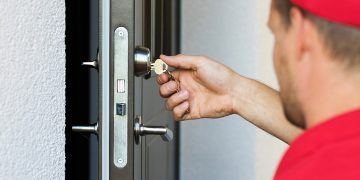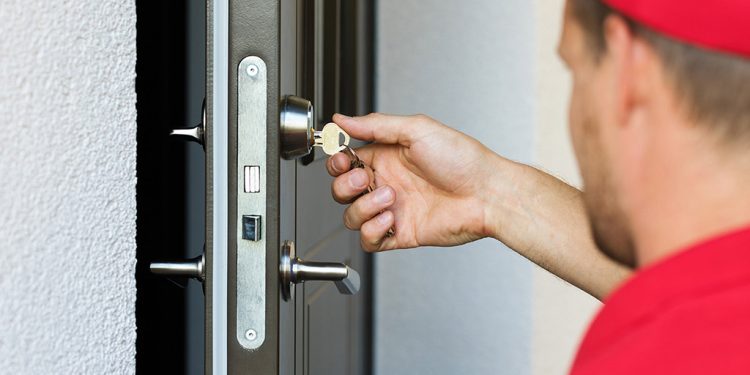Locked out of your house, car or office or dealing with a security issue? Finding a good locksmith such as Tonys Locksmith can be a nightmare. The UK has thousands of locksmiths but how do you find the right one for you? In this guide we will walk you through the steps to find a trustworthy and skilled locksmith in your area so you get the best service.
1. Know the Types of Locksmith Services
Before you start looking, you need to know the types of locksmith services. Knowing what you need will help you narrow down your options:
- Residential Locksmith: These locksmiths deal with home security, lockouts, lock repairs, key duplication and home security surveys.
- Auto Locksmith: Locked out of your car or need a car key replacement? An auto locksmith is the one to call. They can also do transponder key programming and ignition repairs.
- Commercial Locksmith: Commercial locksmiths deal with business security. They can install high security locks and master key systems or do emergency lockouts in office buildings.
- Emergency Locksmith: Many locksmiths offer 24/7 services so you can get help anytime. This is especially useful if you’re locked out of your house or car in the middle of the night.
By knowing what service you need you can look for a locksmith that specialises in that area so they have the right skills and tools for the job.
2. Look for a Locksmith with a Good Reputation
When looking for a locksmith reputation is key. A locksmith with a good reputation for quality and reliability will deliver better service. Here’s how you can check a locksmith’s reputation:
- Check Online Reviews: Websites like Google, Trustpilot and Yelp have reviews from previous customers. Read both the positive and negative reviews to get a balanced view. Look for consistency in the comments; if several reviews mention punctuality, professionalism or fair pricing these are good signs.
- Ask for Recommendations: Word of mouth is still powerful. Ask friends, family or colleagues if they have used a locksmith recently and were they happy with the service. Personal recommendations are more trustworthy than online reviews because they come from people you know.
- Social Media Presence: A reputable locksmith should have an active presence on social media platforms like Facebook or Twitter where they interact with customers and post updates. This will give you an insight into how they run their business and how they handle customer queries or complaints.
3. Check Qualifications and Certifications
In the UK locksmiths are not required by law to have any qualifications. However many good locksmiths choose to join professional bodies or get certified to show their expertise. Here are a few to look for:
- Master Locksmiths Association (MLA): The MLA is the leading trade association for the locksmithing industry in the UK. Members are vetted, have criminal record checks and trained. Choosing an MLA approved locksmith will give you peace of mind that the locksmith is qualified and trustworthy.
- UK Locksmiths Association (UKLA): Similar to the MLA the UKLA provides training and certification for locksmiths. UKLA certified locksmiths have completed full training and are equipped to deal with all locksmithing tasks.
- Disclosure and Barring Service (DBS) Checks: Many locksmiths have DBS checks to confirm they have no criminal record. This is especially important if the locksmith will be working in your home or business. You can ask your locksmith if they have done a DBS check for extra peace of mind.
4. Check Their Experience and Expertise
Experience counts when it comes to locksmithing. An experienced locksmith will have dealt with many situations and will know how to deal with your problem quickly. When choosing a locksmith consider:
- Years in Business: A locksmith with several years in the industry will have built a good reputation and honed their skills. Check their website or ask them how long they’ve been in business.
- Specialisms: Some locksmiths specialise in certain areas, such as electronic security systems, safe installation or car key replacements. If you need a specific service look for a locksmith with expertise in that area.
- Ongoing Training: The locksmithing industry is always evolving, new technologies and security systems are being introduced all the time. A good locksmith should be up to date with the latest developments in the industry. Ask if they do ongoing training or attend industry seminars to keep their skills sharp.
5. Check Availability and Response Time
Lock related emergencies require immediate attention. So choose a locksmith who can respond quickly and is available when you need them. Here’s what to look for:
- 24/7 Availability: If you think you’ll need emergency locksmith services look for a locksmith that’s 24/7. This means you can get help at any time day or night.
- Response Time: Ask the locksmith what their average response time is for emergency call outs. Ideally they should be able to get to you within 30 minutes to an hour depending on your location. Many locksmiths advertise their response times on their website.
- Geographical Coverage: Make sure the locksmith covers your area. Some locksmiths may have limited service areas so check they can get to you. Local locksmiths are often better as they can get to you quicker than those further away.
6. Compare Prices
While cost shouldn’t be the only factor in your decision, make sure you choose a locksmith with fair and transparent pricing. Here’s how to get good value for your money:
- Get Multiple Quotes: Before you commit to a locksmith get quotes from several providers. This will give you a better idea of the average cost for the service you need and help you avoid being ripped off.
- Watch out for Hidden Fees: Ask the locksmith upfront about any additional charges, such as call out fees, after hours fees or mileage charges. A good locksmith should be transparent about their pricing and give you a clear breakdown of the costs.
- Value for Money: While it’s tempting to go for the cheapest option remember quality matters. A locksmith who is much cheaper than others may be cutting corners or using inferior products. Look for a balance between cost and quality.
7. Ask About Warranties and Guarantees
A good locksmith should back their work and offer warranties or guarantees on their services and products. This gives you extra protection if something goes wrong after the job is done. Here’s what to ask:
- Workmanship Guarantee: Ask the locksmith if they offer a guarantee on their workmanship. This means if anything goes wrong due to poor installation or repair the locksmith will come back and fix it free of charge.
- Product Warranties: If the locksmith installs new locks or security systems check if the products come with a manufacturer’s warranty. This protects you against defects or malfunctions in the locks or devices.
- Satisfaction Guarantee: Some locksmiths offer a satisfaction guarantee, meaning they will do whatever it takes to make you happy with the service. This is a good sign of a locksmith who values their customers.
8. Trust Your Instincts
Finally trust your instincts when choosing a locksmith. If something feels off or the locksmith seems unprofessional it’s okay to walk away and find someone else. Here are a few red flags to watch out for:
- Unmarked Vehicles: Reputable locksmiths have branded vehicles that clearly display their company name and contact details. Be wary of locksmiths who turn up in unmarked vans or cars.
- Lack of Identification: A professional locksmith should have identification, such as a business card, license or ID badge. Don’t be afraid to ask for proof of identity before they start work.
- Pushy Sales Tactics: Be cautious of locksmiths who try to sell you expensive products or services you didn’t ask for. A good locksmith will make recommendations but never force you to buy.
9. Local Knowledge
One of the benefits of choosing a local locksmith is they know the area and its specific security issues. For example they may be more aware of common break in methods in your area or the type of locks used in local homes. Local locksmiths can give you personal advice based on their experience in your community.
Plus local locksmiths have established relationships with other local professionals, such as security companies or contractors. This can be useful if you need services beyond locksmithing, such as a security system installation.
Conclusion
Choosing the best locksmith in your area in the UK is a combination of research, recommendations and gut instinct. By knowing the types of locksmith services, checking for qualifications and certifications, experience and prices you can find a locksmith that meets your needs and provides great service. Remember in an emergency you need to act fast but taking a bit more time to find a reputable locksmith will save you from potential headaches and your security will be in good hands.

























